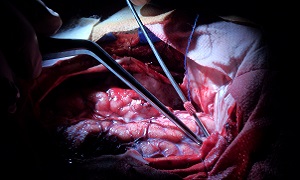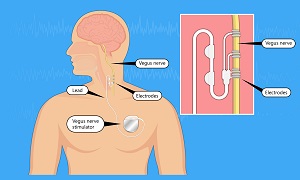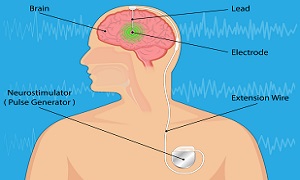Best Doctors in India for Epilepsy Treatment
Best Hospitals in India for Epilepsy Treatment
Reliance Hospital, Mumbai
- City: Mumbai, India
Hospital Highlights:
- Reliance Hospital is one of the best super-specialty care hospitals in Navi Mumbai.
- The main purpose of this hospital is to become a trustworthy place for the best health and hope for society. The hospital is well connected to the suburbs of Mumbai and Navi Mumbai.
- The hospital has various specialty departments, viz., Accident & Emergency, Anesthesiology, Dental Services, Dermatology, Diabetology, Dietetics Nutrition, Endocrinology, ENT, Gastroenterology, General Surgery, Gynaecology And Obstetrics, Hepato Pancreato Biliary Surgery, Infectious Disease, Internal Medicine, Interventional Radiology, Laboratory Medicine, Minimal Access Laparoscopic Surgery, Nephrology, Neurosciences, Opthalmology, Orthopaedics, Paediatrics, Pain Management Palliative Care, Physical Medicine Rehabilitation, Plastic And Reconstructive Surgery, Psychiatry, Pulmonary Medicine, Radiology, Rheumatology, Transplant, Urology Andrology, Vascular Surgery
Lilavati Hospital & Research Centre, Mumbai
- City: Mumbai, India
Hospital Highlights:
- Lilavati Hospital & Research Centre is India’s premier multi-speciality tertiary care hospital and has been recognised as a global medical excellence centre.
- Lilavati Hospital & Research Centre has built an unrivalled level of trust with its patients over the years, thanks to a solid foundation that comprises cutting-edge facilities, the best medical competence, research, education, and charity endeavours.
- The hospital is quite proud of the fact that it now serves patients from all kinds of backgrounds, not just from the United States but from all around the world.
- The hospital has a total of 323 beds, one of the largest Intensive Care Units (ICUs), 12 Operation Theatres with modern amenities, over 300 consultants, and almost 1,800 personnel.
Venkateshwar Hospital, Dwarka, New Delhi
- City: New Delhi, India
Hospital Highlights:
- State-of-the-art technology and devoted healthcare professionals have been brought together under one roof at Venkateshwar Hospital to provide genuine medical care. The hospital’s professionals work together as a team to deliver the best possible treatment to their patients, using the most sophisticated equipment and information technology.
- Venkateshwar Hospital’s mission is to attain global excellence in healthcare by employing evidence-based, ethical clinical practices and cutting-edge technology by a team of highly skilled experts.
MGM Healthcare, Chennai
- City: Chennai, India
Hospital Highlights:
- Located in Chennai, India, MGM Healthcare is a top multispecialty hospital that provides all medical services under one roof.
- Since its founding in 2019, MGM Healthcare has quickly become a leading national referral centre, creating several innovative flagship initiatives.
- MGM Healthcare combines next-generation medical and digital technologies to provide better patient results.
- With 12 centres of excellence, more than 400 inpatient beds, 100 intensive care unit beds, and 24/7 emergency care, MGM Healthcare leaves no chance in redefining the patient experience in Chennai.
- MGM Healthcare boasts 250+ expert doctors across 30+ departments, including Cardiology, Pulmonology, Neurology, Obstetrics & Gynaecology, and more.
- They house 12 specialized Centres of Excellence, including Neurosciences, Orthopaedics, and Multi-Organ Transplantation.
- Their team of doctors, nurses, and paramedics works together to give every patient individualized treatment.
What is Epilepsy?
Epilepsy is a disorder of central nervous system or a neurological disorder characterised by abnormal brain activity that leads to seizures and sometimes loss of awareness.
Causes & risk factors of Epilepsy
- Head trauma or sudden blow to the head.
- Brain tumours or brain stroke.
- Infectious diseases like meningitis, AIDS and viral encephalitis.
- Injuries before birth or prenatal injury.
- Having family history of Epilepsy.
- Dementia can increase the risk of epilepsy in older adults.
Symptoms of Epilepsy
- Temporary confusion
- A brief seizure, usually less than 15 seconds, also known as staring spell.
- Uncontrollable & jerking movements of the arms and legs.
- Loss of awareness.
- Fear, anxiety
Types of Seizures
Doctors generally classify seizures either focal or generalized, based on how the abnormal brain activity begins.
Focal Seizures
Focal Seizures occur when there abnormal activity in just one area of brain.
These seizures are of two types:
- Focal seizures without loss of consciousness – They may change the way things look, smell, feel, taste or sound & may also result in involuntary jerking of a body part, such as an arm or leg but don’t cause a loss of consciousness. They were once called simple partial seizures.
- Focal seizures with impaired awareness – These seizures involve a change or loss of consciousness or awareness. & were once called complex partial seizures.
Generalized seizures
Generalized seizures involve all areas of the brain.
Types of Generalized seizures.
- Absence seizures also known as petit mal seizures – They usually occur in children and involve subtle body movements such as eye blinking or lip smacking.
- Tonic seizures – These usually affect muscles in your back, arms and legs.
- Atonic seizures – Also known as drop seizures, atonic seizures can cause a loss of muscle control, which may cause sudden collapse.
- Clonic seizures – Clonic seizures involve repeated or rhythmic, jerking muscle movements.
- Myoclonic seizures – These usually involve sudden brief jerks.
- Tonic-clonic seizures – These were previously known as grand mal seizures, can cause an abrupt loss of consciousness, body stiffening and shaking, and sometimes loss of bladder control or biting the tongue
Diagnosis of Epilepsy
Neurological exam
Blood tests
Electroencephalogram (EEG)
CT scan
MRI
SPECT
Treatment of Epilepsy
Medicines
Surgeries
When medications fail to provide adequate control over seizures, surgery may be an option. Surgery is generally considered when:
- Seizures originate in a small and well-defined region of the brain
- The said area doesn’t control any vital function of the body like vision, hearing, speech etc.
The surgical options for the treatment of Epilepsy are as follows:
Resective surgery
Resective surgery is the most common surgery used for the treatment of Epilepsy. This surgery involves removal of brain tissues in the area of the brain where seizures originate.
Corpus Callostomy
Corpus callosotomy is the surgery of bundle of nerves that connects the right and left sides of the brain & is usually used in children.
Hemispherectomy
Hemispherectomy involves removal of one side (hemisphere) of the folded gray matter of the brain.
Functional Hemispherectomy
Functional hemispherectomy, is primarily used in children & involves the undercutting of the seizure-inducing hemisphere.
Therapies
Apart from medications and surgery, the following therapies can offer an alternative for treating epilepsy.












